Parents
/Home & Leisure

Commentary: If 'Baby Shark' represents the worst of children's music, this is the genre's best
It was date night for me and my husband, the first since our daughter was born. When we returned to my mom’s house for the baby — hurriedly, being first-time parents — I heard a strange but familiar voice.
It was that of Raffi Cavoukian, known simply as “Raffi,” who rose to fame in the 1970s with such folksy, reassuring numbers as “...Read more
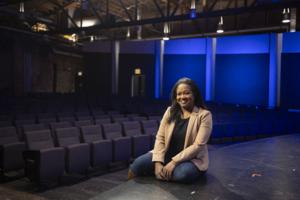
Chicago's FAME Center seeks to expand its footprint and its arts programming for kids across the city
CHICAGO -- South Loop’s FAME Center started in 2018 in what founder Sheila Fortson called “a broom closet” with just a few students and a piano. The nonprofit is now looking to become a major music and arts education landmark in Chicago with the purchase of a 56,000-square-foot historic building.
Matthew Thomas, 14, remembers that when he...Read more

Family guide to new movie releases
'DEN OF THIEVES 2: PANTERA'
Rated R for pervasive language, some violence, drug use and sexual references.
What it’s about: A sequel to the 2018 heist movie that takes the action to Europe and the world of diamond thieves.
The kid attractor factor: Not much, this is an adult crime thriller.
Good lessons/bad lessons: As always, in crime, ...Read more
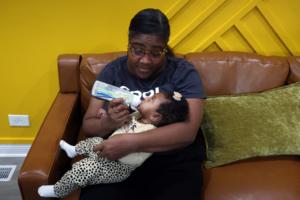
New initiative makes 'Room at the Table' for breastfeeding moms at restaurants
CHICAGO -- As a mom of three girls, Khallilah Watkins isn’t new to the process and preparation it takes to breastfeed a baby outside of the house.
One time with her second daughter, she had to hunker down in a restaurant bathroom for a few minutes to pump.
“That was my first experience pumping in a restaurant and inside of a smelly public ...Read more
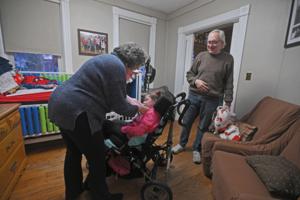
'They just need a home:' Working to find foster care for the neediest children
BALTIMORE -- Laura Hutton has taken in everyone from a baby born weighing a pound and a half to a pregnant teenager, children whose needs ranged from feeding tubes to mental health therapy.
With a background as a special education teacher, Hutton, 55, has become something of a go-to foster parent for children whose medical, emotional or ...Read more

For Haiti's kids, servitude in gangs, death on the streets leave little room for a future
The nine-year-old boys wearing matching knapsacks walk down the street in the morning light, but they are not going to school. In their hands are loaded guns, and the boys know how to use them. One aims his pistol at the Haitian police officers engaging them in a firefight a few hundred yards away. The children are members of one of the gangs ...Read more
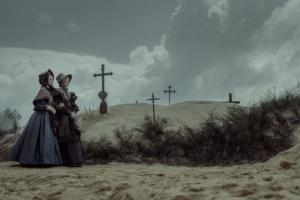
Family guide to new movie releases
'NOSFERATU'
Rated R for bloody violent content, graphic nudity and some sexual content.
What it’s about: This remake of the iconic 1922 vampire film sees a newlywed marriage torn apart by the obsessions of the vampire Count Orlok.
The kid attractor factor: Not much — this is a spooky, moody atmospheric horror film.
Good lessons/bad ...Read more
Family guide to new movie releases
'MUFASA: THE LION KING'
Rated PG for action/violence, peril and some thematic elements.
What it’s about: This prequel to "The Lion King" shares the coming-of-age story of King Mufasa, and details the rift between him and his brother Scar.
The kid attractor factor: The dazzling photorealistic animation, songs and story in this beloved ...Read more

Editorial: Legislation to keep kids safe online cannot wait
What is U.S. House Speaker Mike Johnson waiting for? Months ago, the Louisiana Republican was handed broadly popular legislation to protect children from the harms of social media. But he vowed this week not to allow a vote in his chamber until Donald Trump is sworn in as president and a new Congress convenes. Stalling the protections is wrong ...Read more

Family guide to new movie releases
'KRAVEN THE HUNTER'
Rated R for strong bloody violence, and language.
What it’s about: This Spider-Man antihero gets his own stand-alone movie and origin story in this comic book adaptation.
The kid attractor factor: Kids may be drawn to the superhero genre.
Good lessons/bad lessons: Walk your own path but be aware of your motivations.
...Read more
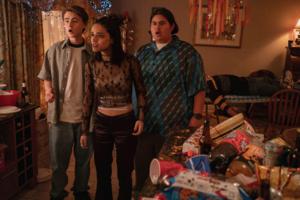
Family guide to new movie releases
'Y2K'
Rated R for bloody violence, strong sexual content/nudity, pervasive language, and teen drug and alcohol use.
What it’s about: A period horror comedy set during New Year's Eve 1999, during which the Y2K bug actually causes the robots to rise up and attack a small town.
The kid attractor factor: Teens will be drawn to the horror genre ...Read more
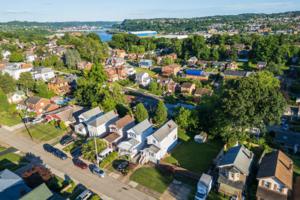
Editorial: How we build our neighborhoods shapes our communities -- and kids' mental health
A September study in the Journal of the American Medical Association illustrates just how interconnected mental health and community truly are. By cross-referencing survey results about emotional well-being from over 2,000 Allegheny County teenagers with the locations of their homes, the study proved that living near community assets like ...Read more
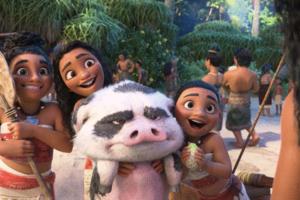
Family guide to new movie releases
'MOANA 2'
Rated PG for action/peril.
What it’s about: A sequel to the beloved 2016 animated film sees Moana as a more experienced wayfinder, putting together a crew for a voyage across the ocean to find and connect with more people.
The kid attractor factor: The gorgeous animation, songs and inspiring story.
Good lessons/bad lessons: Do ...Read more
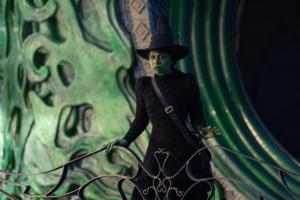
Family guide to new movie releases
'WICKED'
Rated PG for some scary action, thematic material and brief suggestive material.
What it’s about: The movie musical adaptation of the blockbuster stage production that imagines the origins of the Wicked Witch of the West from "The Wizard of Oz."
The kid attractor factor: The fantastical magical setting, songs and stars.
Good ...Read more
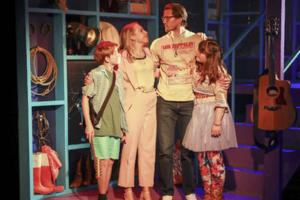
She got seizures at 17 months old. So her dad wrote a musical about epilepsy and empathy
LOS ANGELES -- In March 1998, Ben Decter drove from Los Angeles to Tijuana to get medicine for his 17-month-old daughter, Addie. She had "catastrophic childhood epilepsy," the neurologist had told him, and a drug not yet available in the U.S. was their best bet to treat her nonstop seizures.
That terrifying moment is currently revisited five ...Read more

Family guide to new movie releases
'RED ONE'
Rated PG-13 (for action, some violence, and language)
What it’s about: Santa Claus is kidnapped right before Christmas, so his head of security and a hacker go looking for him among mythical beasts and beings.
The kid attractor factor: This sort of has a kiddie appeal with the holiday cheer and monsters and creatures, but it also...Read more
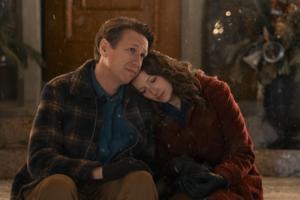
Family guide to new movie releases
'HERETIC'
Rated R for some bloody violence.
What it’s about: Two young Mormon women end up at the home of a man they believe they can convert, and find a trap waiting for them.
The kid attractor factor: None for this philosophical horror flick.
Good lessons/bad lessons: You can do everything right and a man still might be determined to ...Read more
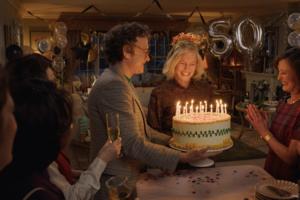
Family guide to new movie releases
'HERE'
Rated PG-13 for thematic material, some suggestive material, brief strong language and smoking.
What it’s about: An innovative domestic drama looking at one house and one place from a single point of view over many hundreds of years.
The kid attractor factor: Not much — this is more of an adult drama.
Good lessons/bad lessons: ...Read more
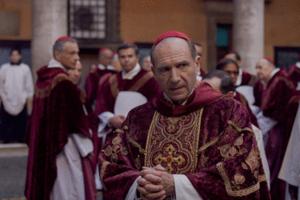
Family guide to new movie releases
'VENOM: THE LAST DANCE'
Rated PG-13 for intense sequences of violence and action, bloody images and strong language.
What it’s about: The third spin on the dance floor for Eddie Brock and his sassy symbiote sidekick sees them at Area 51 battling other aliens.
The kid attractor factor: It's a monster movie comic book character — some ...Read more

Kids are sucking down baby food pouches at record rates. 'We're going to pay for it,' experts say
LOS ANGELES -- Every week, Caitlin Scuttio stops by Target and piles her cart with pureed food pouches for her 4-year-old and twin 18-month-olds sons.
In goes a 24-pack of unsweetened applesauce. Then a 24-pack of the fruit and veggie blend. And finally, the yogurt pouches for her oldest son's breakfast. "He'd eat six apple sauce pouches a day ...Read more
Popular Stories
- Commentary: If 'Baby Shark' represents the worst of children's music, this is the genre's best
- New initiative makes 'Room at the Table' for breastfeeding moms at restaurants
- Chicago's FAME Center seeks to expand its footprint and its arts programming for kids across the city
- Family guide to new movie releases
- 'They just need a home:' Working to find foster care for the neediest children








